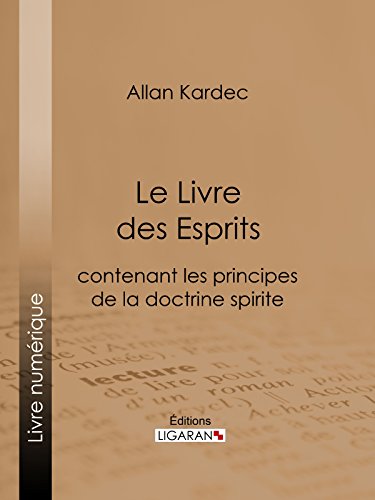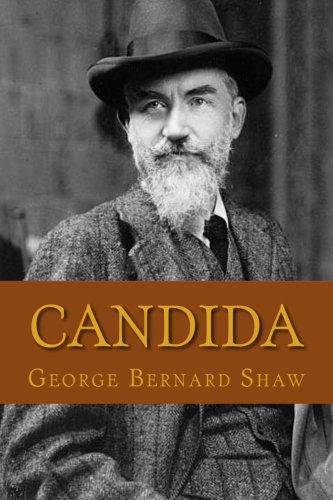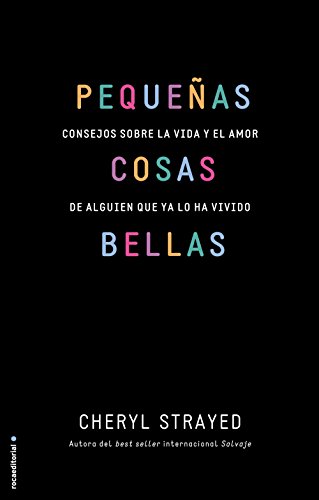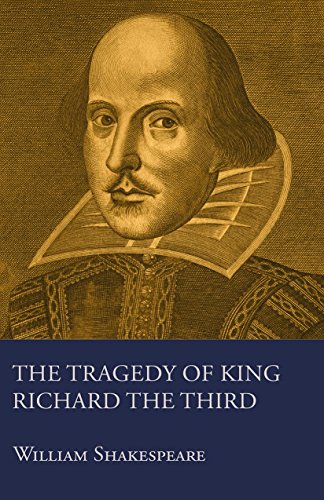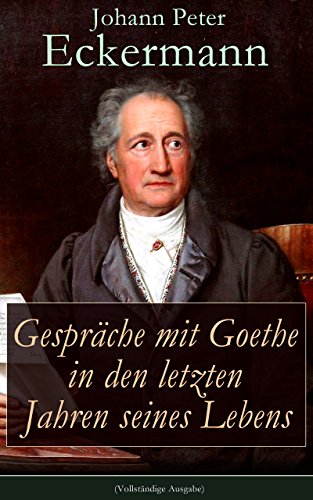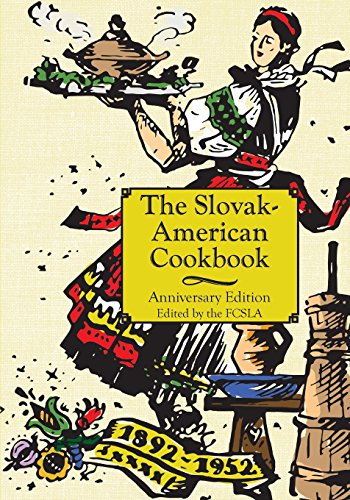Fee Download Minding the Modern: Human Agency, Intellectual Traditions, and Responsible Knowledge, by Thomas Pfau
The method to obtain this publication Minding The Modern: Human Agency, Intellectual Traditions, And Responsible Knowledge, By Thomas Pfau is really simple. You may not go for some locations as well as spend the time to just find guide Minding The Modern: Human Agency, Intellectual Traditions, And Responsible Knowledge, By Thomas Pfau Actually, you might not constantly get guide as you're willing. But below, just by search and also locate Minding The Modern: Human Agency, Intellectual Traditions, And Responsible Knowledge, By Thomas Pfau, you could get the listings of the books that you actually expect. In some cases, there are many books that are revealed. Those books obviously will surprise you as this Minding The Modern: Human Agency, Intellectual Traditions, And Responsible Knowledge, By Thomas Pfau compilation.

Minding the Modern: Human Agency, Intellectual Traditions, and Responsible Knowledge, by Thomas Pfau

Fee Download Minding the Modern: Human Agency, Intellectual Traditions, and Responsible Knowledge, by Thomas Pfau
Book lovers, when you need a brand-new book to check out, locate the book Minding The Modern: Human Agency, Intellectual Traditions, And Responsible Knowledge, By Thomas Pfau right here. Never ever worry not to discover exactly what you require. Is the Minding The Modern: Human Agency, Intellectual Traditions, And Responsible Knowledge, By Thomas Pfau your required book now? That's true; you are actually an excellent user. This is a best book Minding The Modern: Human Agency, Intellectual Traditions, And Responsible Knowledge, By Thomas Pfau that comes from excellent author to show you. Guide Minding The Modern: Human Agency, Intellectual Traditions, And Responsible Knowledge, By Thomas Pfau supplies the most effective encounter and lesson to take, not just take, yet likewise find out.
Checking out publication Minding The Modern: Human Agency, Intellectual Traditions, And Responsible Knowledge, By Thomas Pfau, nowadays, will not require you to constantly purchase in the shop off-line. There is a great place to get guide Minding The Modern: Human Agency, Intellectual Traditions, And Responsible Knowledge, By Thomas Pfau by on-line. This internet site is the very best website with lots varieties of book collections. As this Minding The Modern: Human Agency, Intellectual Traditions, And Responsible Knowledge, By Thomas Pfau will remain in this publication, all books that you need will correct below, as well. Simply search for the name or title of the book Minding The Modern: Human Agency, Intellectual Traditions, And Responsible Knowledge, By Thomas Pfau You can find exactly what you are looking for.
So, also you need responsibility from the company, you may not be perplexed any more considering that books Minding The Modern: Human Agency, Intellectual Traditions, And Responsible Knowledge, By Thomas Pfau will always help you. If this Minding The Modern: Human Agency, Intellectual Traditions, And Responsible Knowledge, By Thomas Pfau is your finest companion today to cover your job or job, you can when feasible get this publication. How? As we have actually informed previously, merely check out the web link that our company offer below. The verdict is not only the book Minding The Modern: Human Agency, Intellectual Traditions, And Responsible Knowledge, By Thomas Pfau that you hunt for; it is how you will get numerous publications to assist your ability as well as capability to have piece de resistance.
We will reveal you the best and most convenient means to get publication Minding The Modern: Human Agency, Intellectual Traditions, And Responsible Knowledge, By Thomas Pfau in this globe. Lots of compilations that will sustain your obligation will certainly be right here. It will make you feel so ideal to be part of this website. Ending up being the participant to always see exactly what up-to-date from this publication Minding The Modern: Human Agency, Intellectual Traditions, And Responsible Knowledge, By Thomas Pfau site will make you feel best to look for the books. So, just now, and below, get this Minding The Modern: Human Agency, Intellectual Traditions, And Responsible Knowledge, By Thomas Pfau to download as well as wait for your precious worthwhile.

In this brilliant study, Thomas Pfau argues that the loss of foundational concepts in classical and medieval Aristotelian philosophy caused a fateful separation between reason and will in European thought. Pfau traces the evolution and eventual deterioration of key concepts of human agency—will, person, judgment, action—from antiquity through Scholasticism and on to eighteenth-century moral theory and its critical revision in the works of Samuel Taylor Coleridge. Featuring extended critical discussions of Aristotle, Gnosticism, Augustine, Aquinas, Ockham, Hobbes, Shaftesbury, Mandeville, Hutcheson, Hume, Adam Smith, and Coleridge, this study contends that humanistic concepts they seek to elucidate acquire meaning and significance only inasmuch as we are prepared positively to engage (rather than historicize) their previous usages. Beginning with the rise of theological (and, eventually, secular) voluntarism, modern thought appears increasingly reluctant and, in time unable to engage the deep history of its own underlying conceptions, thus leaving our understanding of the nature and function of humanistic inquiry increasingly frayed and incoherent. One consequence of this shift is to leave the moral self-expression of intellectual elites and ordinary citizens alike stunted, which in turn has fueled the widespread notion that moral and ethical concerns are but a special branch of inquiry largely determined by opinion rather than dialogical reasoning, judgment, and practice. A clear sign of this regression is the present crisis in the study of the humanities, whose role is overwhelmingly conceived (and negatively appraised) in terms of scientific theories, methods, and objectives. The ultimate casualty of this reductionism has been the very idea of personhood and the disappearance of an adequate ethical language. Minding the Modern is not merely a chapter in the history of ideas; it is a thorough phenomenological and metaphysical study of the roots of today's predicaments. “[A] learned, deeply important, and accomplished study . . . that calls upon a set of interpretive and communal traditions that, far from being fossilized, contain radical and renovating power, but whose power can be called on, extended, elaborated, and applied to the present and future only if one knows that those traditions can and do remain alive and available, and that we ignore or pronounce them 'past' at our peril. The sweep and comprehensiveness of the work are remarkable. This is not a history of philosophy at all. It is a call for us to rededicate ourselves to a serious, demanding practice of humanistic studies.” —James Engell, Gurney Professor of English and Professor of Comparative Literature, Harvard University
"Minding the Modern is comparable to Alasdair MacIntyre’s Whose Justice? Which Rationality? and Charles Taylor’s A Secular Age. With extraordinary erudition, Pfau locates the philosophical developments that contributed to the agony of the modern mind. Moreover, he helps us see why many who exemplify that intellectual stance do not recognize their own despair. Suffice it to say, this is an immensely important book that hopefully will be read widely and across the disciplines." —Stanley Hauerwas, Gilbert T. Rowe Professor of Theological Ethics, Duke Divinity School
- Sales Rank: #725455 in Books
- Published on: 2015-02-15
- Original language: English
- Number of items: 1
- Dimensions: 10.00" h x 1.50" w x 7.00" l, .0 pounds
- Binding: Paperback
- 688 pages
Review
"By returning the concerns of the 'big books' to literary studies, Pfau hopes to deliver the humanities in general from the methodological dead ends of historicism and reductionist approaches imported from the hard sciences. . . . Whether sympathetic or hostile to Pfau's arguments, readers will find them a useful provocation. The ensuing debate, and the intellectual traditions it will engage, could help restore seriousness and urgency to the humanities." —The Hedgehog Review, vol. 16, no. 1, Spring 2014
(The Hedgehog Review)
"Pfau's book is recommended reading for humanists on both sides of the contemporary querelle des Anciens et des Modernes, and required reading for humanists whose theoretical apparatus is derived predominately or exclusively from late modern and postmodern sources. Pfau sees the proliferation of theories as a symptom of a crisis in humane learning." —Choice (Choice)
"Minding the Modern is an immensely rich genealogy and critique of modernity. For years to come, its innovative phenomenological approach promises to be at the center of debates in theology, philosophy, and other humanistic disciplines about what it means to be human and about the direction the humanities themselves should take." —The Review of Metaphysics, Issue 68.4 (Review of Metaphysics)
". . . like Charles Taylor (A Secular Age) and Brad Gregory (The Unintended Reformation), Pfau is a man equipped for the enormous cartographic task of remapping the rise of modernity. . . . Minding the Modern is not history, nor is Pfau a historian. Instead, it is an extended, historically grounded close reading of texts that an accomplished literature professor is well equipped to provide. . . . Pfau focuses his wide-ranging account by choosing the (admittedly enormous) category of human personhood, and its corollaries of will and agency, as the vehicle in which he takes his tour of the ages. His express aim is 'to capture the intrinsic idea of will and person through a series of forensic readings of representative arguments.'" —Books & Culture (Books & Culture)
"Pfau's book is rich and deserving a look. . . . Anyone interested in the history of philosophy or teaching in a humanities program should have this book on their shelves to help build their lectures, giving them a perspective to share with students that provides opportunities for questioning some of our key humanistic terms." —Augustinian Studies, 46: 1 (2015) (Augustinian Studies)
“Thomas Pfau’s Minding the Modern offers its readers one of the most substantial historical discussions now available on the relationship between human will, intellect and reason.” —The Immanent Frame
(The Immanent Frame)
About the Author
Thomas Pfau is the Alice Mary Baldwin Professor of English and professor of German at Duke University, with a secondary appointment on the Duke Divinity School faculty. He is the author and editor of a number of books, including Romantic Moods: Paranoia, Trauma, and Melancholy, 1790–1840.
Most helpful customer reviews
23 of 23 people found the following review helpful.
A Secular Age 2.0
By Matthew Milliner
Please Note: This review first appeared in Books & Culture (Sept./Oct. 2014).
Back in the Seventies, the noted anthropologist Max Müller put it this way: "Every day, every week, every month, every quarter, the most widely read journals seem just now to vie with each other in telling us that the time for religion is past, that faith is a hallucination or an infantile disease, that the gods have at last been found out and exploded, and that there is no possible knowledge except what comes to us through our senses." Even while a lingering, residual religion still pervaded the atmosphere, the smart set was discovering that religion was a sham. But those were the Seventies, more specifically, the 1870s.[1] Scanning the publications that appear on the horizon with increasing frequency today, it seems that precisely the opposite might be the case. Every day, every week, every month, every quarter, the most widely read journals seem just now to vie with each other in telling us that the time for religion has returned, that secularism is a hallucination, that modernism has at last been found out and exploded. Of course, there remains a residual, instinctual secularism in the academic world, and we have every reason to think secular hegemony will continue. But if one bothers to get serious—to read the latest journals and lengthier tomes—religion has in countless ways "returned." As Talal Asad put it over a decade ago, "If anything is agreed upon [today], it is that a straightforward narrative of progress from the religious to the secular is no longer acceptable."[2]
That narrative, axiomatic for Auguste Comte, Karl Marx, Max Weber and Émile Durkheim, attempted to frame religion with a beginning (the mists of Paleolithic superstition), middle (the Middle Ages), and end (the modern "Age of Reason"). Certainly one characteristic of the current academic landscape is the need not merely to protest such an account but to replace it. The epoch of secular modernity may too have a beginning (the nominalist turn of the late Middle Ages), a middle (the epistemological avarice of the Enlightenment), and perhaps even something of an end. Each of the books attempting to tell this new story has stirred enormous debate, and weaknesses have been revealed. But the exposure of flaws has debugged, not discredited, these new post-secular narratives, resulting in accounts that make this fresh telling of our time grow more convincing still.
The latest of these tomes is Thomas Pfau's Minding the Modern: Human Agency, Intellectual Traditions, and Responsible Knowledge (Notre Dame University Press, 2013). Pfau, an expert in the literature of Romanticism, is Alice Mary Baldwin Professor of English at Duke University, where he is also a professor of German, where he also shares a secondary appointment at Duke Divinity School. Viz., like Charles Taylor (A Secular Age) and Brad Gregory (The Unintended Reformation), Pfau is a man equipped for the enormous cartographic task of remapping the rise of modernity. Sweeping narrative retellings such as Pfau's are frequently accused of being unfocused, tangential, historically selective, or insufficiently edited. Pfau, however, deftly avoids dilettantism by never quite leaving his realm of professional training even while he ranges widely beyond it. Which is to say, Minding the Modern is no history, nor is Pfau a historian. Instead, it is an extended, historically grounded close reading of texts that an accomplished literature professor is well equipped to provide. As he puts it, "any account of competing or intersecting intellectual traditions has to rest on the kind of close, textual analysis that, at its best, has always been the bread and butter of literary studies." Such an approach enables Pfau to seamlessly move, for example, between Shaftsbury and Heidegger, Augustine and Arendt, Levinas and Cardinal Newman, or Marion and Aquinas, on the same page. This stems not from indecision but from a premeditated attempt to intertwine historical and philosophical, or horizontal and vertical, approaches with a sustained argument. In addition, Pfau focuses his wide-ranging account by choosing the (admittedly enormous) category of human personhood, and its corollaries of will and agency, as the vehicle in which he takes his tour of the ages. His express aim is "to capture the intrinsic idea of will and person through a series of forensic readings of representative arguments." We cannot defend the threatened humanities, Pfau's account suggests, without tracing the conceptual history of the term "human." When researchers in the humanities attempt to generate yet another methodological "theory," further subdivide their already narrow subject areas, or sell out to the mania for professionalization to impress their bureaucratic overlords, they demonstrate a failure of confidence before the more amply funded, information-based sciences. Humanistic inquiry instead requires "sustained immersion in a many-layered past composed of intellectual genealogies and their often conflicting lines of transmission," which is precisely what Minding the Modern provides.
Pfau demonstrates that by selecting certain classical developments and refusing others, the medieval epoch developed a coherent account of personhood by never reducing personhood to coherence—by maintaining a certain reverence before the mystery of human agency that could never be adequately explained. Such an understanding of personhood offered the breakthrough insight in Trinitarian reflection, which is to say, theology remains the queen of the sciences in this English professor's investigation (a pattern that other non-theologians would do well to follow). "Proving" this sense of personhood is no easier than "proving" the existence of God. In neither case is proof possible, at least on the shriveled criteria of later Enlightenment rationality. Considering this heavy dose of eloquent reverence before indefinable realities, Augustine and Aquinas are the high-water marks of Pfau's account. But with the advent of nominalism, something of a constriction took place—a shrinking of previously more spacious contours of reflection.
Pfau's account of late medieval developments relies on a close reading of primary sources in the original languages, especially William of Ockham, making his narrative far harder for specialists to dismiss. Carefully avoiding wholesale condemnation of John Duns Scotus, Pfau nevertheless deftly isolates the critical shortcoming of the "univocal" move (conceiving of God and creatures under una voce, one voice). Namely, "its obliviousness to the fact that that the fundamental act of human intelligence … unfolds in essentially different ways when it engages divine or finite matters, respectively." Hence God becomes a " 'thing' in himself …. He becomes a First Cause, the supreme 'substance' or 'power' essentially continuous with a world now conceived less as complex and infinitely variegated divine order than as an inventory of discrete things to be tabulated and appropriated at will." Or more succinctly, "Cosmos becomes nature." And within this new atmosphere, the luscious grape of Augustine's sense of will as an "enduring and all-pervading substratum of personhood" withers into an unappealing raisin: The "non-transparent and non-cognitive will that can only be known or unmasked after it has projected itself into social and political spaces."
Pfau's assessment of the superiority of classical Christian accounts is what gives Minding the Modern a flavor similar to that of other formidable narrative sweeps such as Taylor's or Gregory's. He thereby might seem to fall under one of the most common—and most tedious—critiques of such books, that they are "nostalgic," as if to appreciate patristic and medieval thought is to be insufficiently grateful for penicillin, air conditioning, or democratic progress. Leaving aside the fact that such an accusation affords evidence that said critics have not seriously engaged the texts in question,[3] Pfau further demonstrates that the nostalgia critique is itself helplessly enmeshed within the assumptions of modernity:
"To address [the nostalgia] question—likely to be raised about any account critical of the modern project—one should probably begin by clarifying what nostalgia is ordinarily taken to mean, and what its conceptual premises are. The longing for a past plenitude, as indeed the supposition that it had once existed, rests on two closely related assumptions: first, that historical time is linear rather than cyclical, monochrome in its forward motion rather than recursive and imbued with various kinds of "higher time" or spikes of semantic intensity. For it is this premise that sanctions the axiom of "loss" without which there could not be any nostalgic affect. Second, nostalgia implies that our relationship to the past is one of disaffection, even terminal estrangement, a premise borne out by the self-certifying affect of "longing" at the heart of nostalgia. Yet precisely these premises also show nostalgia to be a distinctively modern phenomenon inasmuch as it acquiesces in the modern (historicist) view of time as a monochrome vector pointing toward the future, which renders the past as strictly passé, that is, as sheer inventory to be, perhaps, objectively known but most definitely incapable of signifying for (let alone transforming) us."
What such a passage shows, beyond evidencing the lucid erudition that characterizes Minding the Modern in its entirely, is that Pfau is less nostalgic than stubborn—insisting matters remain open that modern discourse assumed, by fiat, to be passé. Indeed, modernity frequently conveyed the impression that certain traditions had been responsibly disassembled and exposed, when in fact they were merely discarded with an appeal to fashion. Descartes never refuted Aristotle as much as he dismissed him, and Kant never showed classical metaphysics to be empirically false, as much as he insisted we accept his alternate premises from the outset (which so many did). Pfau thereby aims to resume conversations about the human person that modernity, without genuine warrant and not without extended protest, managed to forget. Instead of nostalgia then, Pfau offers a "lucid and articulate mourning" for the conceptual amnesia that characterizes recent times. Modernity then, for Pfau, is "less a decisive break than a prolonged failure to remember traditions, legacies, and debts that, however unrecognized or repressed, continue to operate with undiminished efficacy."
By attempting to argue for, as oppose to simply resurrect, forgotten traditions, Pfau avoids the puzzling fatalism of another noteworthy cartographer of modernity, Louis Dupré, whose Passage to Modernity ends by claiming that the modern cultural shift had a "definitive and irreversible impact that transform[ed] the very essence of reality."[4] For Dupré, "past thought cannot solve modern problems …. It may assist us in sorting out modern issues, but it does not provide ready answers. Modern culture has introduced a totally new way of confronting the real."[5] But Pfau—well aware of Dupré's account—offers us anything but a dry neo-Thomist evasion. The Cambridge Platonists, John Henry Newman, Gerard Manley Hopkins, and above all the contemporary philosophical project of phenomenology, together "seek to lead the modern self out of the methodological dead-end," especially by witnessing to the persistent mystery of personhood. Hence, Augustine is described as "proto-phenomenological." For Pfau, just to "invoke the term 'person' at all is to confront a pervasive ethical miscarriage of modernity—and to do so precisely by remembering a term whose complex history and normative authority the modern era had forgotten at its own peril."
To explain this "dramatic contraction" from the Christian Platonist synthesis to modernity traced by Pfau, it may be helpful to track a series of concepts and what occurs to them as they migrate into modernism. The idea of space, for example, goes from pleroma (fullness) to emptiness. Reason goes from participating in truth (reason per se) to producing of truth (reasoning), and knowledge becomes less a phenomenon of disclosure than an object of possession, viz., the neutral and instrumental "information" so celebrated today. Thinking shifts from Aristotelian phronesis (practical rationality) to mere curiosity, and is propelled less by judgment than by "method." Habit, once understood as synderesis, the benevolent patterns that imbue intelligence and free the mind for contemplation, becomes mindless repetition. Time becomes less epiphanic than merely linear, and history less a story of timeless validity than a sequence of anonymous events. And, to zero in on Pfau's primary concerns, human action morphs from something meaningful to mere "behavior" or performative self-enactment. The self, once in flux towards a telos, is merely in flux. Human affairs, once marked by frailty, are now marked chiefly by uncertainty. The will, once related intimately to the intellect and even being a Trinitarian vestige in the human soul, becomes a blind and unselfconscious compulsion. The human person, no longer a mystery that is necessarily in relationship, becomes the familiar "autonomous individual" of modern times. Once again, to offer such a resume is not at all to suggest its inevitability, an impression sometimes given in the more Hegelian, "where we are now" moments in other accounts. Instead, Pfau tells such a story in order to break its hold.
Yet there is a final, and perhaps more serious concern with grand narratives that I am describing, namely that they insufficiently account for plurality. It is perhaps not coincidental, for example, that Gregory, Taylor, and Pfau are all Roman Catholic. Why, furthermore, if the Middle Ages had such a superior account of personhood, did it frequently do such a miserable job of defending the personhood of those beyond Catholicism? And while it would be unfair to suggest (as some have) that Gregory aims to return civilization to the medieval arrangement, his choice to center his account around the unintended consequences of Protestantism have, not surprisingly, frustrated some readers sympathetic to his new narrative who happen to not be Catholic. Pfau is not immune to this criticism. Indeed, he condemns the "anti-institutional, fideist hyper-Augustinianism of seventeenth century Puritanism, Jansensim, early eighteenth century German Pietism, and … evangelical and Pentecostal denominationalism of the early nineteenth century [SIC]" as all doomed by late medieval developments. Even if some Protestant conceptions of the will leave much to be desired, this remains a sloppy conflation within an otherwise supremely careful account.
But one of the advantages of Minding the Modern being so long is that it, perhaps inadvertently, overcomes this condemnation. Even if the "gentlemen's knowledge" of Anglicanism is deemed inadequate by Pfau early on, Readers of Minding the Modern will discern that the first hero in the narrative—the first thinker who offers an alternative to the deracinated view of personhood on offer in early modernism—is an Anglican. The Cambridge Platonists, not Roman Catholics or Orthodox thinkers, are the ones most responsible for articulating an alternative to the new arrangement. Faced with a desymbolized universe that had, in time, spawned Thomas Hobbes' reductive account of the human will, Ralph Cudworth insisted—like a good Thomist—that "Created things … when they exist, they are what they are, This or That, Absolutely or Relatively, not by Will or Arbitrary Command, but by the Necessity of their Nature." This strand of Cambridge Platonism was, in turn, inherited by the primary hero of Minding the Modern, Samuel Taylor Coleridge, who was also an (admittedly adventurous) Anglican.[6] In Pfau's account, it is the sage of Highgate who "reinvests human agency with an intellectual cum spiritual dimension of which the will had been stripped since the advent of Franciscan, voluntarist theology in the early fourteenth century." Far from an academic debate unconnected to practical affairs, Coleridge's recovery of the mystery of personhood was necessary for effectively resisting the reduction of humans to things, namely slavery (Coleridge invented the word "dehumanize" in just this context). Rejecting historicist readings that reduce poetry to context, Pfau reads Coleridge's The Rime of the Ancient Mariner as "a parable for the hubris of modernity, specifically its founding purely volitional act whereby the solitary individual shatters the cosmos by turning it into an inventory of disaggregated objects to be subjected to (inherently skeptical) analysis and experimentation." One can't help but consider the Rime's senselessly slaughtered albatross to be the concept of personhood that modern political accounts of autonomous individual "rights" have been unable to successfully revive.
Still, despite the fact that Protestants (one opium-addicted Anglican in particular) are the unexpected heroes of Pfau's narrative, evangelicals, Puritans, and Free Church radicals are not similarly redeemed. To be sure, "strictly fideist, evangelical models of religion that treat belief in … a transcendent essence as some of kind of definitive, counterfactual certitude and spiritual property" are worthy of condemnation, and betray, by their very conceptual poverty, the marks of modernity. At the same time, there are certainly more than a few Puritans (Jonathan Edwards, for instance) and Lutherans (Johann Georg Hamann, among others) who could be summoned as additional counter-witnesses to the modernist hubris that Pfau condemns. But images, as it happens, may tell this story better than words.
Minding the Modern begins with an extended meditation on Lorenzo Lotto's Portrait of a Gentleman in his Study (1528-30). The young man's "forlorn, abstracted, and blank gaze [suggests] disorientation and incipient melancholy." Indeed, he seems "utterly alone in the world—the quintessentially modern, solitary individual confined in his study." The massive tome in the image "intimates that books no longer hold answers, perhaps because the right questions elude him. The unwieldy folio appears more as dead mass than as a repository of learning." Considering that the tome offered in turn by Pfau has the opposite effect, Minding the Modern might be considered an adequate response to Lotto's painting. But Rembrandt's The Mennonite Preacher Anslo and His Wife, from a century later (1641), offers an equally effective refutation of Lotto's modern disaffection. Here the massive folio—in this case the Bible—emits light to the point of rendering the nearby candle superfluous. While the hand of Lotto's gentleman was irresolute and listless, the hand of the preacher Anslo finds its vocation in gesturing to the truth-gushing book. Its message thereby migrates from the luminous pages, flapping like a dove in flight, to enliven the countenance of the preacher's wife. "Nothing more convincingly refutes the once conventional and still not quite vanquished opinion that Protestant piety erected an insurmountable barrier between a corrupt nature and divine grace," wrote Louis Dupré, "than its artistic and poetic achievement of the Baroque."[7] Displaying "an intensity of religious feeling that is anything but forensic," Anslo's wife—her name was Aeltje Schouten—is set to be overcome with some mysterious consolation. Enamored more by the truth than by her husband, she is poised to exit that melancholic, modern condition into which the young man in Lotto's painting is about to descend.
There have been countless like her.
Matthew J. Milliner is assistant professor of art history at Wheaton College.
1. Max Müller, "The Ideas of Infinity and Law," in Lectures on the Origin and Growth of Religion (London: Longmans, Green, and Co. Williams and Norgate, 1878), p. 218.
2. Talal Asad, The Formations of the Secular: Christianity, Islam, Modernity (Stanford Univ. Press, 2003), p. 1.
3. Catherine Pickstock, for example, insists that her claim is not "an invocation of the pre-modern, but as something like an avant-garde innovation against the modern already begun in the name of a deepening of the Patristic tradition. To invoke such a project is not to return to the past. Rather, it is the re-assuming of the newest and most innovative thing, scarcely known of at all." Catherine Pickstock, "Duns Scotus: His Historical and Contemporary Significance," Modern Theology Vol. 21, No. 4 (October 2005), p. 568. And the concluding chapter of Brad Gregory's The Unintended Reformation is pointedly entitled "Against Nostalgia."
4. Louis Dupré, Passage to Modernity (Yale Univ. Press, 1993), p. 149.
5. Ibid., p. 7.
6. For an account of Coleridge's relation to Christianity that is consanguine with Pfau's approach, see Jeffrey W. Barbeau, Coleridge, the Bible, and Religion (Palgrave Macmillan, 2008), a book which has been lately enhanced with the same author's account of Coleridge's daughter, Sara Coleridge: Her Life and Thought (Palgrave Macmillan, 2014).
7. Dupré, Passage to Modernity, p. 243.
See all 1 customer reviews...
Minding the Modern: Human Agency, Intellectual Traditions, and Responsible Knowledge, by Thomas Pfau PDF
Minding the Modern: Human Agency, Intellectual Traditions, and Responsible Knowledge, by Thomas Pfau EPub
Minding the Modern: Human Agency, Intellectual Traditions, and Responsible Knowledge, by Thomas Pfau Doc
Minding the Modern: Human Agency, Intellectual Traditions, and Responsible Knowledge, by Thomas Pfau iBooks
Minding the Modern: Human Agency, Intellectual Traditions, and Responsible Knowledge, by Thomas Pfau rtf
Minding the Modern: Human Agency, Intellectual Traditions, and Responsible Knowledge, by Thomas Pfau Mobipocket
Minding the Modern: Human Agency, Intellectual Traditions, and Responsible Knowledge, by Thomas Pfau Kindle
~ Fee Download Minding the Modern: Human Agency, Intellectual Traditions, and Responsible Knowledge, by Thomas Pfau Doc
~ Fee Download Minding the Modern: Human Agency, Intellectual Traditions, and Responsible Knowledge, by Thomas Pfau Doc
~ Fee Download Minding the Modern: Human Agency, Intellectual Traditions, and Responsible Knowledge, by Thomas Pfau Doc
~ Fee Download Minding the Modern: Human Agency, Intellectual Traditions, and Responsible Knowledge, by Thomas Pfau Doc
